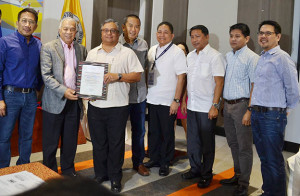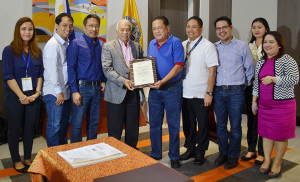
Two Davao-based terminals are the first facilities in the Philippines to ever secure accreditation as authorized customs facilities (ACF) under new Bureau of Customs (BOC) rules.
Davao International Container Terminal (DICT) based in Panabo, Davao Del Norte and Terminal Facilities Services Corp. (TEFASCO) in Ilang, Davao Del Sur complied with accreditation rules outlined in Customs Memorandum No. 30-2015, according to Customs commissioner Alberto Lina, who was at the awarding ceremony in Davao City on November 6.
CMO 30-2015 provides rules on the establishment, supervision and control of ACF. ACF are wharves, container yards, container freight stations, warehouses, examination areas, and other facilities located within customs zones or in airports and seaports that are used for temporary handling and storage of imported goods immediately discharged from airplanes, vessels, and other modes of international transport.

Issued last September, the CMO aims to provide minimum security standards for ACF and to promote their use, while seeking to prevent the entry of drugs and anti-social goods through them.
Alexander Valoria, president and chief executive officer of Anflo Management and Investment Corp., which owns DICT in partnership with Dole-Stanfilco, said the BOC memo “is the new system authority initiated by Commissioner Lina to be able to generalize or regularize all requirements” for on-dock customs facilities.
Valoria said having the ACF status will “affect us by being able to communicate better with the Bureau of Customs.”
DICT, which opened for business in 2013, is an international container terminal servicing mainly agricultural products, especially bananas for export, and similar shipments.
TEFASCO, on the other hand, is a privately owned wharf and common user port for break bulk, bulk and containerized import, export and domestic cargoes. The facility handles agricultural products, rice imports, fertilizer imports, salt, and plywood, among others. – Text and photos by Roumina Pablo
